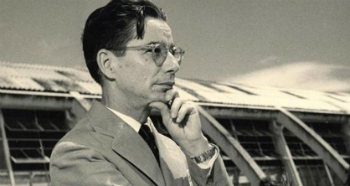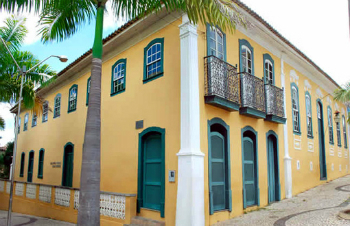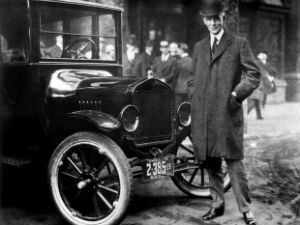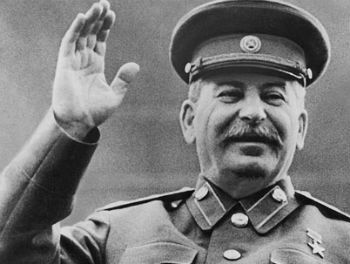Anísio Teixeira he was a Brazilian educator and writer.
He is known for being the creator of public schools in the country and for being responsible for the democratization of Brazilian education.
Considered one of the greatest articulators and thinkers of Brazilian education in the 20th century, Anísio aimed at building public, democratic, free and accessible education for all citizens.
According to him:
“Democracy will only exist in Brazil on the day the machine that prepares democracies is set up in the country. This machine is the one from the public school.”
Biography

Anísio Spínola Teixeira was born on July 12, 1900 in Caetité, in the interior of Bahia. He studied at Jesuit colleges in his hometown and in Salvador.
In 1922 he entered the Faculty of Law at the Federal University of Rio de Janeiro (UFRJ). He later went to study in New York, where he did a master's degree at Columbia University.
In Bahia, Anísio worked in schools as General Inspector of Education and Director of Public Instruction. In Rio de Janeiro, he was part of the Department of Education and Culture of the Federal District.
At that moment, Anísio starts working for an educational reform in the country. He was creator of the Federal District University (UDF), in Rio de Janeiro.
In addition, along with 25 other intellectuals, he participated in the production of Manifesto of the Pioneers of New Education (1932).
This document was a pioneer in presenting a set of ideas about implementing an educational renewal.
In 1935 he resigned from public office and began to make a living by translating books. This is because he felt a lot of political pressure while he was acting as an educator and articulator of a new educational reform.
The truth is that these factors did not prevent Anísio from continuing with his ideas in the educational area.
So, in 1946 he became UNESCO's Adviser on Higher Education. The following year he was secretary of the Department of Education and Health of Bahia.
It was during his work at this secretariat that Anísio was recognized worldwide. This is because he was responsible for setting up an education and culture center in 1950 in Salvador. This center is called “Centro Popular de Educação Carneiro Ribeiro” or “Escola Parque”.
In this innovative project inspired by American education, Anísio managed to design an integrated educational center. There, he combined formal education with informal extracurricular activities, such as artistic activities.
In 1951 he joined the General Secretariat of the Campaign for the Improvement of Higher Education Personnel.
Later, this body became Capes: Coordination for the Improvement of Higher Education Personnel. Capes is linked to the Ministry of Education and aims to consolidate higher education activities in the country.
Consequently, he was director of the National Institute of Pedagogical Studies (INEP) and creator of the Brazilian Center for Educational Research (CBPE).
During his work in these bodies, Anísio focused on studies on the reality of Brazil and on the implementation of public schools.
During this period, he spread his ideas and proposals by giving several lectures in Brazil and abroad.
He was also director of the Brazilian Society for the Progress of Science (SBPC) and a contributor to the Law of Guidelines and Bases (LDB) in 1961.
He was a university professor in the discipline of School Administration at UFRJ and in 1963, alongside Darcy Ribeiro (1922-1997), he was dean of the University of Brasília (UNB).
With the military coup of 64, Anísio began to be persecuted for his liberal ideas. Therefore, he went to the United States and when he returned to Brazil continued with his work in the area of education.
See too: LDB (updated in 2019)
Death
Anísio died on March 11, 1971, in the city of Rio de Janeiro. The educator was found dead in the elevator moat.
His death was considered an accident, although some believe he was murdered.
Construction
Anísio brings together a range of works that deal with the theme of education, of which the following deserve mention:
- American Aspects of Education (1928)
- On the March to Democracy: Outside the United States (1934)
- Education for Democracy (1936)
- Education and the Brazilian crisis (1956)
- Education is not a privilege (1957)
- Education and University (1962)
- Education is a right (1968)
- Education in Brazil (1969)
- Education and the modern world (1969)
- Short introduction to the philosophy of education (1971)
Anísio Teixeira Foundation
The Anísio Teixeira Foundation (FAT) is a cultural and educational entity located in Salvador, Bahia.
It was created on September 21, 1989 and in addition to offering educational and cultural activities, it aims to preserve the memory of the educator.
In addition, she supports research related to Anísio and education in Brazil.
Anísio Teixeira House

Anísio Teixeira House in Caetité, Bahia
Casa Anísio Teixeira is located in the city of Caetité, where the educator was born. The space is managed by the Anísio Teixeira Foundation.
It is a cultural center founded in 1998 that houses some cultural facilities such as a library, museum and cinema.
At the site, cultural and educational activities such as events, workshops, meetings, etc. are promoted.
Phrases by Anísio Teixeira
- “To educate is to grow. And growing up is living. Education is, therefore, life in the most authentic sense of the word.”
- “I am against education as an exclusive process of forming an elite, keeping the vast majority of the population in a state of illiteracy and ignorance.”
- “It shocks me to see the waste of public resources for education, dispensed in grants from all over nature to educational activities, without nexus or order, purely paternalistic or frankly voters.”
- “It disgusts me to know that out of the five million who are in school, only 450,000 make it to 4th. series, everyone else becoming mentally frustrated and unable to integrate into an industrial civilization and achieve a standard of living of simple human decency.”
Read too:
education in Brazil
Paulo Freire



